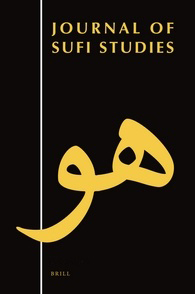
Brill has just announced the inaugural issue of a new publication, the Journal of Sufi Studies. The first issue is currently available free online. the following excerpt is from the editor’s introduction:
While the academic study of Sufism has a relatively long and productive pedigree in both western and Islamic academic discourses, in recent years the mainstay philological, philosophical and literary approaches to the subject have begun to give way to a much wider array of approaches drawn from across the humanities and social sciences. In the new conversational vistas and cross-fertilizations attendant to the study of the subject that such a situation portends, it would appear that the time is now ripe for sentiment to give way to assurance. What can, for example, anthropologists bring to the table which might be of interest to art historians? How might the insights of those dealing with philosophical discourse inform the work of those interested in cultural history? How and in what ways might a study devoted to pre-modern Sufi communities be usefully placed alongside one investigating globalized Sufi networks in modern times? While disciplinary territoriality and parochialism might been seen as posing difficulties to an effort seeking to link together scholarly engagements produced in different academic arenas, creating a space for genuine conversation and cross-fertilization on a subject of shared interest is not necessarily as arduous as it may sound. This, especially when dealing with a subject as amendable to a general multivocality, scholarly or otherwise, as that which this journal looks to engage.
It is precisely such a space which the Journal of Sufi Studies looks to create: an international scholarly forum for research on Sufism which, in taking an expansive view of the subject, brings together all disciplinary perspectives so as to promote a wide understanding of the richly variegated Sufi tradition in both thought and practice and in its cultural and social contexts. By providing a forum for academic research of the highest caliber on any and all denotable instances of Sufism wherever they may be situated, the journal looks to make a distinctive contribution to current scholarship on Sufism and its integration into the broader field of Islamic studies. As such, it is the fervent hope of the editors that this journal will come to serve as a meaningful outlet for the field of Sufi studies, one which fosters, shapes and energizes the efforts of those researchers who have ventured to engage one or another instantiation of the particularly persistent feature of the Islamic tradition which is Sufism, and in doing so contribute to those processes which are presently shaping the contours of the field itself.